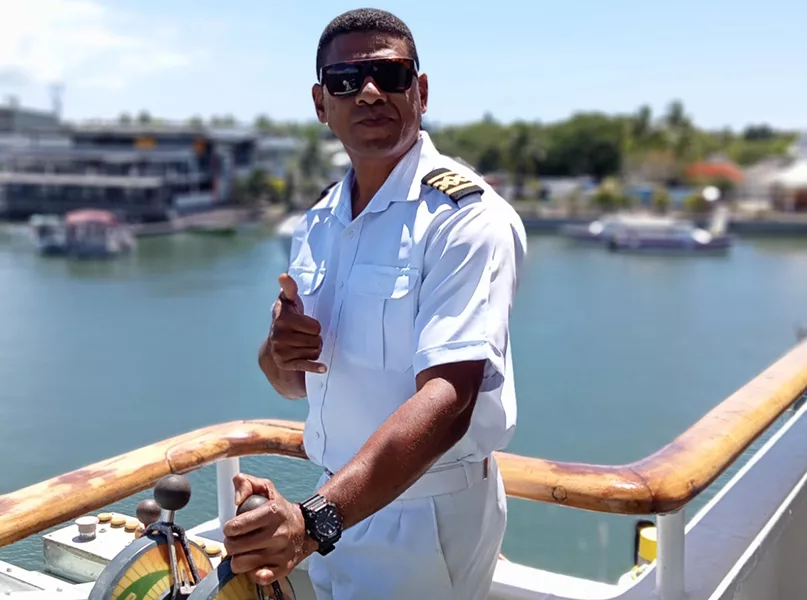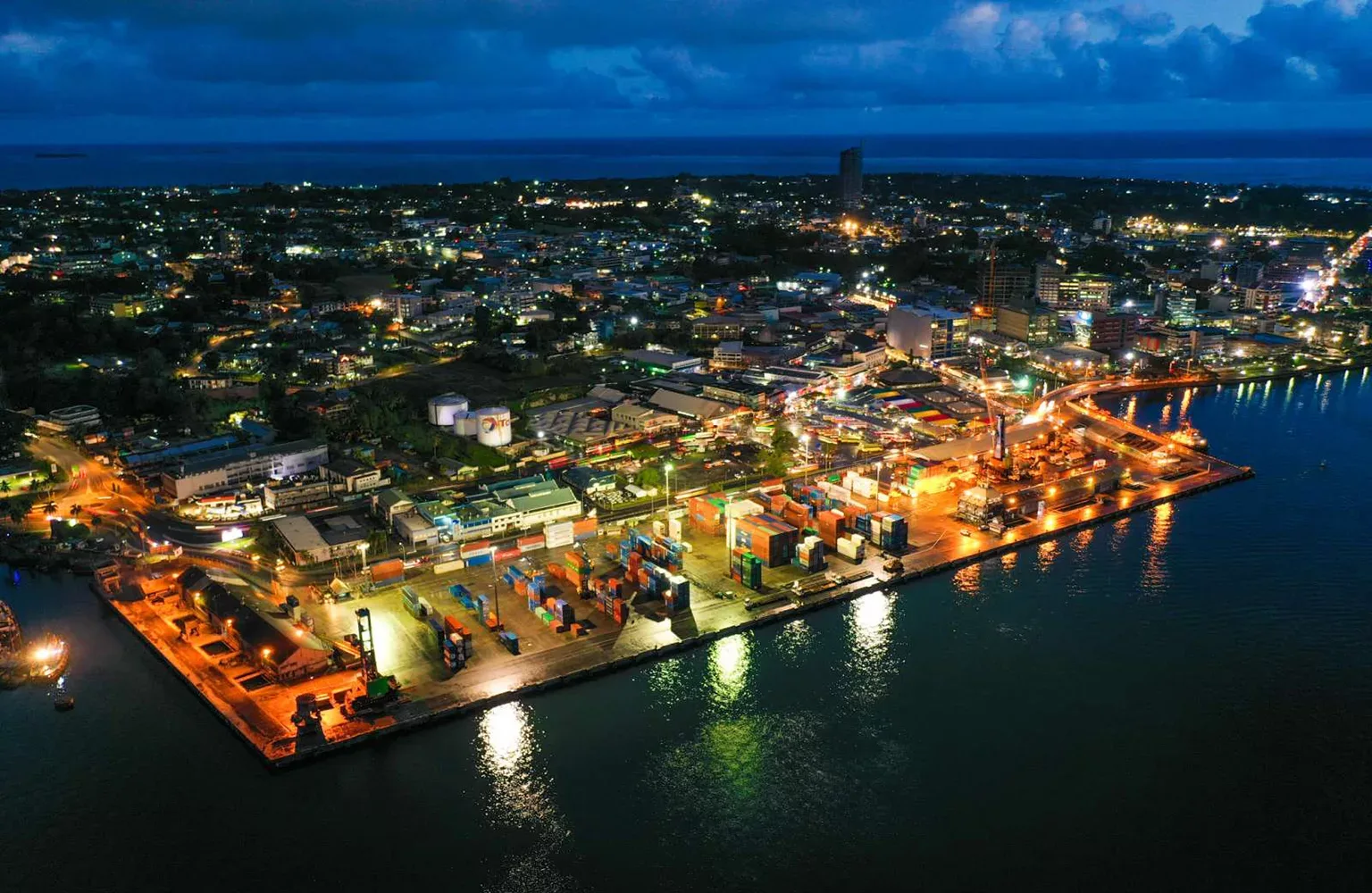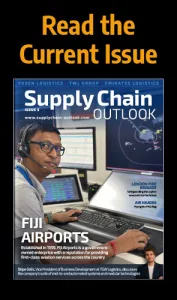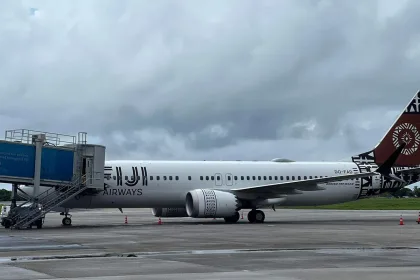As the supply chain industry makes an economic impact, we speak to Vajira Piyasena, CEO of Fiji Port Corporation Pte Limited, about its expansion plans, environmental initiatives, and efficient operations.
POWERING THE PORTS OF THE PACIFIC
As an Oceanic tropical island nation in the South Pacific, Fiji relies on its ‘blue economy’ income.
The import and export activities of its supply chain operations are centred around four major ports: Port of Suva, Port of Lautoka on Fiji’s largest island of Viti Levu, Port of Malau situated on its second largest island of Vanua Levu, and Port of Levuka in the former capital.
Ports are vital links in the supply chain, facilitating the transit of goods between local and international markets. Indeed, they play a pivotal role in these operations, serving as a crucial link that sustains Fijian trade, tourism, and sea transportation.
“Our commitment extends across various domains, including infrastructure modernisation, digital transformation, and a steadfast focus on environmental sustainability in every facet of our port operations,” opens Vajira Piyasena, CEO of Fiji Ports Corporation Pte Limited (FPCL).
The company has proven resilient, reliable, and forward-thinking in its approach to trade facilitation and Fiji’s economic growth. Furthermore, Piyasena finds the ports industry an exciting space to work in, particularly when addressing new challenges.
“Ports have changed from typical holding centres to providers of entire logistical networks in an era of globalisation. Since ports facilitate trade and maintain supply lines, they act as accelerators for economic development,” he continues.
NAVIGATING THE INDUSTRY
After successfully adapting to the post-COVID-19 pandemic landscape, FPCL found innovative solutions to evolving situations to ensure the smooth functioning of port operations.
Unanticipated changes and trends in the shipping, ports, and logistics sectors have presented numerous challenges, such as the COVID-19 pandemic, which impaired industries globally; however, many ports worldwide continued with trade and supply chains.
“Despite global supply chain disruptions, we remained focused on facilitating trade with 100 percent of our ports in operation, and our commitment to service excellence remained unwavering,” Piyasena says proudly.
FPCL’s tenacious approach was crucial under such challenging circumstances, but that is not the only aspect differentiating it from the competition, as it is the only port management company in Fiji.
Moreover, the company sees itself as the leader of the South Pacific region. This was made feasible by divesting shares and entering into a public-private partnership with the Fiji government and a private overseas enterprise.
Apart from being Fiji’s only port management company, FPCL is also renowned for establishing trends around the Pacific.
“Among our firsts is being the first port to introduce and implement a Vessel Traffic Management System (VTMS). In addition, we were the first port in the Pacific to perform a Level 1 energy audit,” reveals Piyasena.
“While we have worked hard to keep abreast of developments in global ports, we have undertaken some very unique projects, including the installation of solar-powered panels in one of our facilities, making it carbon neutral, the purchase of modern and environmentally friendly pilot boats, and the installation of an electric incinerator.”
Furthermore, FPCL has adopted a sustainability procurement guideline which allows it to assess vendors who wish to undertake projects. This includes using eco-friendly construction materials, implementing erosion control measures, and minimising environmental impact.
“By integrating sustainable approaches, the project contributes to environmental conservation, protecting the marine ecosystem, and ensuring the long-term sustainability of the surrounding environment,” Piyasena informs.
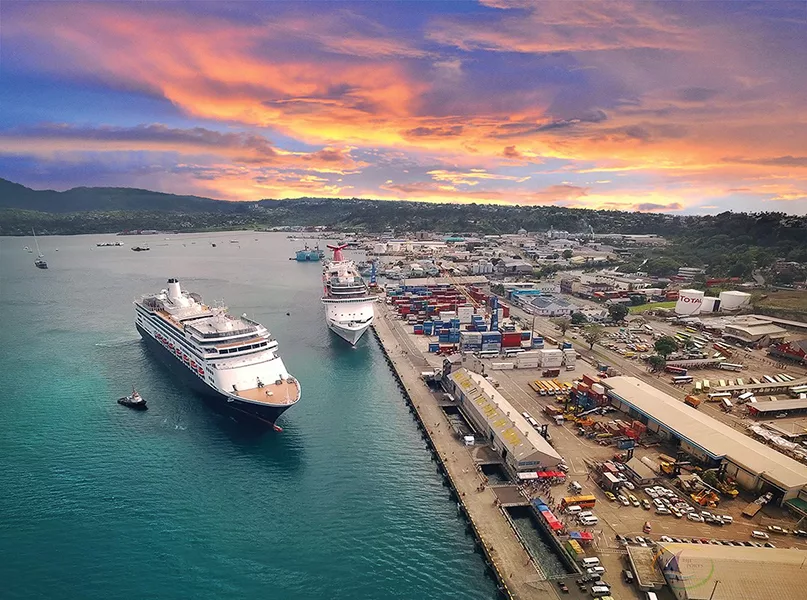
CREATING OPPORTUNITIES
Fiji’s strategic location in the centre of the Pacific Ocean has earned it the nickname “hub of the Pacific”, and FPCL facilitates corporate operations by being a convenient transhipment hub in the region.
“We are the only port management company in Fiji, and our location has been greatly beneficial to our customers as the Port of Suva handles 70 percent of cargo, and the Port of Lautoka takes care of the remaining 30 percent,” Piyasena notes.
Due to its sparsely distributed islands, Fiji relies on inter-island shipping as its primary method of transport, connecting the outer islands to the main ports, towns, and cities; this is where FPCL comes in, providing efficient port facilities for the domestic routes.
“With the Fijian economy highly dependent on international trade, our supply chains are extremely important to us, as is being able to provide safe and well-charted shipping routes and reliable access from Fiji to the world, and vice versa.
“Transport connectivity in Fiji is critical, and our responsibility is to provide essential services, improve trade and tourism, and access domestic and international markets,” emphasises Piyasena.
The FPCL management’s vision is to develop Lautoka Foreshore with strategic goals that promote progress and significantly boost Fiji’s economy.
“While we understand that the Port of Lautoka will continue to be busy and will remain a critical node in the supply chain systems for nearby islands, the existing facilities need rehabilitation works, which is now a top priority for the company,” he acknowledges.
This will see the expansion of the wharf area and the possibility of setting up a slipway in the port area. The Lautoka Port Container Yard 3 project has been completed with environmental benefits and operational efficiency in mind, requiring a total investment of FJD$8.2 million.
At the same time, the Lautoka Port Container Yard 4 project is in progress. The planned construction features sustainable practices incorporated in the design; by integrating a sustainable approach, the project contributes to environmental conservation and protects the marine ecosystem.
“Our port operations prioritise reducing ecological impact and advancing towards energy efficiency”
Vajira Piyasena, CEO, Fiji Port Corporation Pte Limited
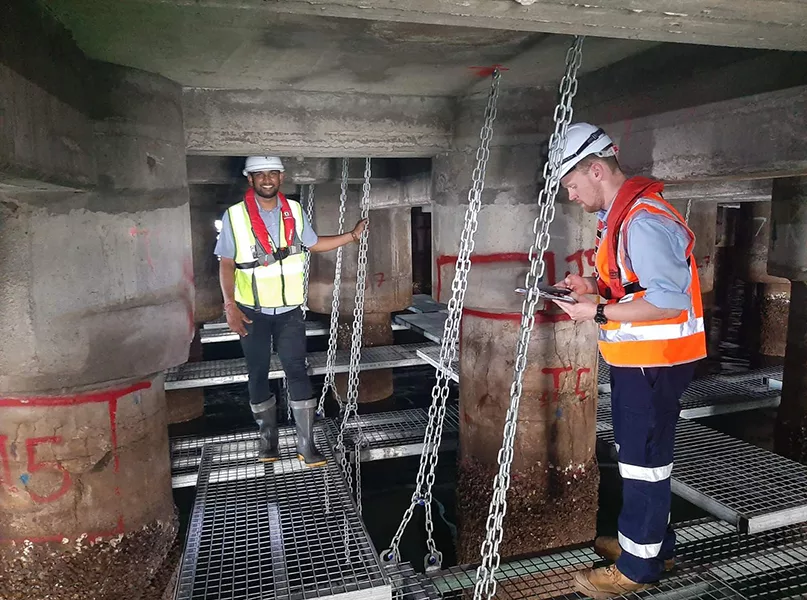
PORT PRIORITIES
FPCL has prioritised infrastructure development to boost Fiji’s supply chain operational efficiency. In 2022, the company completed more than 10 key projects, emphasising upgrading the infrastructure at the Suva, Lautoka, and Levuka Ports.
The upgrades have enabled FPCL to accommodate larger vessels, optimise cargo handling capabilities, and provide improved facilities supporting trade and commerce growth in the Pacific region.
“Prioritising sustainability and environmental stewardship are crucial to FPCL as we work to fulfil our obligations as responsible corporate citizens. Our port operations prioritise reducing ecological impact and advancing towards energy efficiency.
“We continually look for innovative ways to lower emissions, preserve resources, and safeguard the environment by introducing and implementing green port initiatives and projects. We aim to mitigate the effects of climate change,” explains Piyasena.
Digitalisation and the advancement of smart port initiatives are also priorities for FPCL, with goals to improve productivity, streamline processes, and give clients a flawless experience by utilising cutting-edge technology and creative systems.
“As we are trailblazers in the marine industry in the Pacific region, we regard this digital journey as a chance to modernise our operations,” he enthuses.
One of the key priority areas for FPCL is to set up an organisational resilience roadmap, which allows unexpected disruptions to be anticipated. This will enable the company to absorb and adapt accordingly by responding favourably to the unpredictability of the future.
FPCL complies with Organisational Resilience Management (ISO 22316:2017), ensuring that it continues to deliver the vision, mission, goals, and strategic objectives that it has set out to achieve.
Additionally, FPCL has used the Pacific Ports Vision 2013 – 2050 framework as a benchmark for its sustainability efforts.
“In this regard, we have been able to implement and complete sustainable projects which align with our vision of being the smart, green gateway for trade in the Pacific region,” Piyasena finishes.
